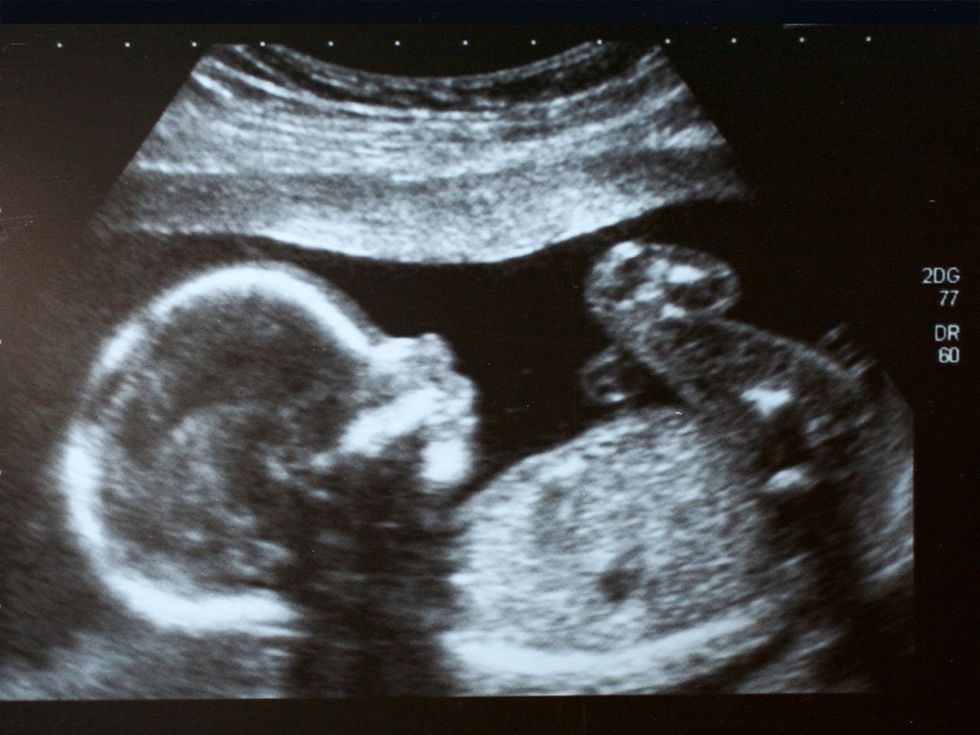It has become increasingly common to wait until later in life to start having children. That means the oftentimes already-challenging process of conceiving often requires medical help. One of the more successful techniques is in vitro fertilization (IVF), an expensive process that often requires multiple attempts. In one attempt, researchers were able to capture, in real-time, a human embryo implanting itself on an artificial uterine wall.
This discovery can ultimately help doctors improve the success rates and mechanics behind IVF, meaning a higher likelihood of pregnancy for couples and individuals using the option. What's particularly cool and unique is that they created a new ex vivo implantation platform that allows high-resolution microscopy. It's like building a tree house to hide and watch birds in their natural habitat. In this instance, they built the trees too.

An invasive process that has never been observed before
This was the first time the process of embryo attachment was recorded—not only in real time but also in 3D. The researchers from the Institute of Bioengineering of Catalonia (IBEC) published their project in August 2025 in Science Advances. The manufactured platform is composed of a gel created from collagen and various proteins needed for basic embryo development. This artificial structure undergoes fluorescent imaging and microscopy. The results reveal and detail the mechanical interactions of the embryo.
Head of Bioengineering in Reproductive Health for IBEC and co-author of the study Samuel Ojosnegros said, "We have observed that human embryos burrow into the uterus, exerting considerable force during the process. These forces are necessary because the embryos must be able to invade the uterine tissue, becoming completely integrated with it." He continued, "It is a surprisingly invasive process... [that] had never been observed before."

There are many challenges related to in vitro fertilization
In the modern world, many people are waiting to start their families. As people continue to push the window for conception back, their bodies may not be as receptive. IVF has various rates of success determined by age and health. International Fertility Group (IFG) reported on studies from the Society for Reproductive Technology (SART) showing women under 35 had a 55 percent success rate after IVF, whereas women over 40 dropped to around seven percent.
A 2024 study published in KFF reported that nearly one-third of reproductive-age women find just getting access to the service extremely complicated. Cost is a major concern, and one in eight women reported the need for fertility assistance at some point to become pregnant.

Added to the challenges of access and cost is the incredible stress. The National Library of Medicine published a study on reproductive aid-related stressors in 2024. The results found that fertility and mental health counselors were a vital component of care and should be supplied through any fertility agency. The research revealed, "88% of participants reported medium or high levels of perceived stress, and 43.8% of respondents showed probable indications of depression. Perceived stress and depression symptoms were significantly higher for individuals currently undergoing, but not yet pregnant from, ART [assisted reproductive technologies] treatments."
Starting a family is one of the most emotionally challenging and rewarding experiences a person can go through. Technologies continue to make advancements that not only allow more people an opportunity to have children, but also provide overall better health care.
You can watch the revolutionary video of a human embryo exerting force on the platform here.






















 What foods would you pick without diet culture telling you what to do?
What foods would you pick without diet culture telling you what to do?  Flexibility can help you adapt to – and enjoy – different food situations.
Flexibility can help you adapt to – and enjoy – different food situations.
 Anxious young woman in the rain.Photo credit
Anxious young woman in the rain.Photo credit  Woman takes notes.Photo credit
Woman takes notes.Photo credit 
 Revenge can feel easier than forgiveness, which often brings sadness or anxiety.
Revenge can feel easier than forgiveness, which often brings sadness or anxiety. 
 In the past two years, two malaria vaccines have become available for babies starting at 5 months of age.
In the past two years, two malaria vaccines have become available for babies starting at 5 months of age. By exploiting vulnerabilities in the malaria parasite’s defense system, researchers hope to develop a treatment that blocks the parasite from entering cells.
By exploiting vulnerabilities in the malaria parasite’s defense system, researchers hope to develop a treatment that blocks the parasite from entering cells. Created with
Created with